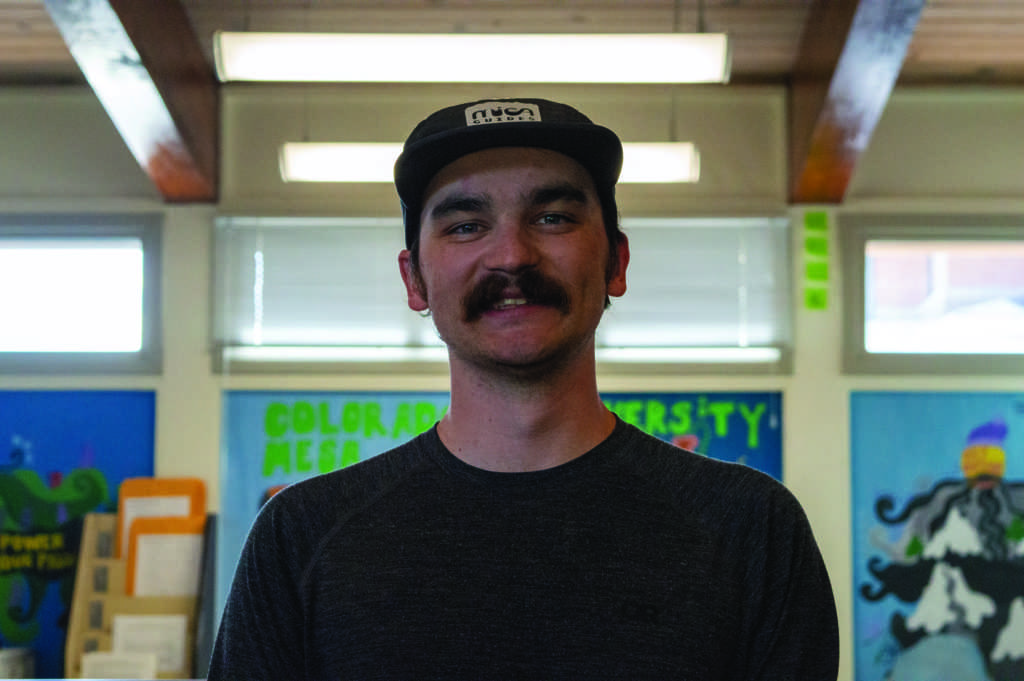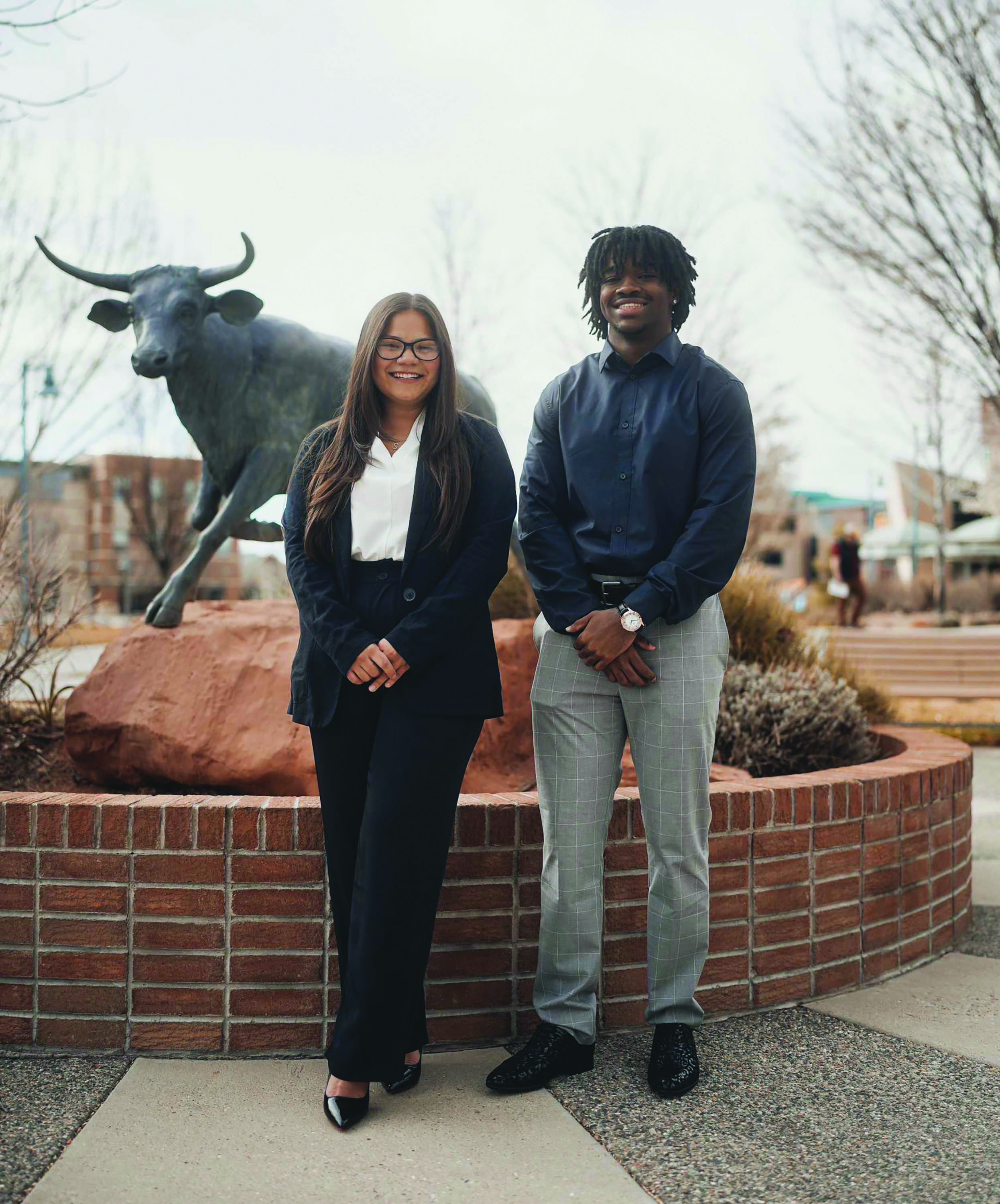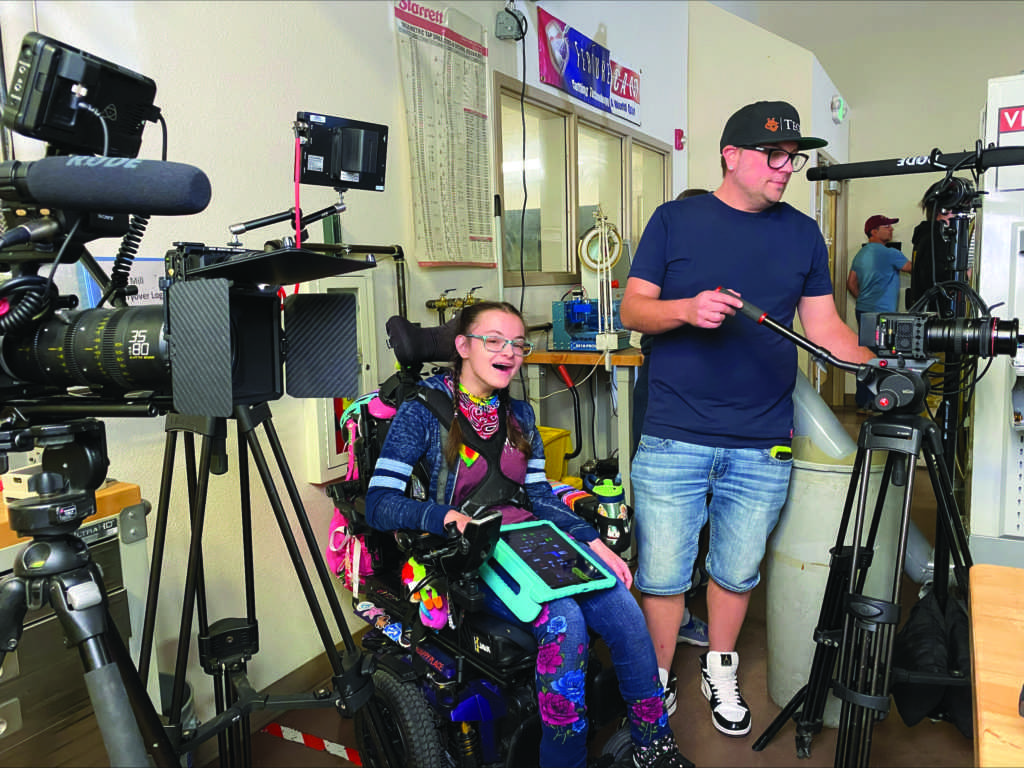Last October, Anna Nichols, director of integrated services, attended a conference at theUniversity of Tennessee in Knoxville, with the goal of gathering information to create
what she calls a “one-stop shop” to help students with needs ranging from advising to
financial aid to registration.
The result of her work is the Integrated Resources for Information and Solutions, or IRIS, as the service is advertised. Launched August 3 on the Colorado Mesa University, IRIS is located on the first floor of Lowell Heiny Hall, behind a new maroon and gray desk.
A report from CMU media relations estimates the cost of IRIS at $48,000. Currently, CMU has spent $32,000 on the remodel and refurbishing of LH, including the new welcome desk. This total, however, does not include some bills that CMU has yet to receive. Finally, $3,000 was spent for marketing costs to re-brand the student services of LH as IRIS.
Staffed by employees from the various departments of Lowell Heiny, the goal of IRIS is to help students with various needs at one location, instead of bouncing them between
departments.
“We try to provide assistance to the students so they don’t have to bounce around place to place to place, so we kind of like patrol the traffic, direct the students, be prepared for when they do need to go to whatever department they need to go to,” Josh Russell, a self-service specialist at IRIS, said.
Nichols hopes that this new model will reduce student frustration and stress, as well as provide students with the knowledge and tools to fix their own problems in the future.
“Students are more used to the Amazon models, the Google models, how do I get
everything done in one place,” Nichols said. “Schools need to be competitive.”
With its logo of a woman’s face and catchy acronym, IRIS is reminiscent of Amazon’s
Alexa or Apple’s Siri, applications that students are likely familiar and comfortable with.
Nichols wanted to “embrace something modern and fresh,” rather than something that
seemed administrative and confusing to students, like the old set-up of LH.
IRIS is modeled after similar programs at various universities. After Nichols attended the conference on integrated resources last fall, she presented her ideas to CMU President Tim Foster and the university’s board of trustees. Before beginning work on her own version of what Nichols had observed, Foster had her visit five additional universities to take note of what they included in their integrated resources, and what CMU could do better.
One unique aspect of CMU’s program is the inclusion of advising along with other
services. While most integrated resources programs include billing and payment,
financial aid, records, and registration, CMU is one of the first to add advising to its
repertoire. Nichols explains that this addition will help students get on the right track at
the beginning of school, instead of having to make additional trips to Lowell Heiny later on in the semester.
IRIS functions off four guiding principles listed on the school’s website. First, IRIS is
designed to promote self-service, which entails encouraging students and providing them with the resources to figure out problems on their own. Second, IRIS employees are trained to provide exceptional customer service, focusing mainly on eliminating the
aforementioned “bounce” between departments.
Third, IRIS is centered on students and solving their problems. Nichols emphasized this
attribute, discussing how she hopes IRIS will change with the needs of students. Finally,
IRIS will continue to seek improvement to create operational efficiency.
Though IRIS was launched at the beginning of the school year, Nichols said that the
service is still a work-in-progress in some ways. She plans to expand the service to
include phone and email help within the next year. In addition, she hopes to make IRIS a proactive service as well by holding seminars for freshmen on how to register for classes, or for upperclassmen on how to check their Degree Works page.
Nichols said, “We want to be a living breathing organism that shapes with what the
students are needing but also responds to changing policy and regulation, and we want to make it happen in real time, rather than waiting for us to make this perfect system. We’re not here to say we know all the answers, but we’re here to find all the answers.”








